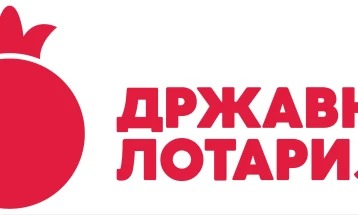China Focus releases a new feature on Understanding China's Development Model

China Focus releases a new feature on Understanding China's Development Model. The feature is contributed by Sajjad Malik who is an academic, journalist, columnist and researcher based in Pakistan, South Asia.
China's economic progress has for years been under discussion as to whether it can be used as an alternative by developing countries to expedite economic development and pull millions out of grinding poverty. Before going into its merits, it is first important to understand the model.
The key component of China's economic philosophy is that it espouses a development path with Chinese characteristics to achieve win-win cooperation worldwide. The model suggests that every country should identify its own development needs and chalk out a policy and action plan to implement it.
However, in a globalized world, different states are intertwined with each other in terms of politics, economy, finance, technology, and culture. Countries and peoples are interconnected and interdependent in their exchanges, and they need to seek more synergies while pursuing development.
The concept of win-win cooperation for a shared future provides the central plank to orchestrate the full-throttle development of a nation. Adhering to this concept, China, during the course of its development, has offered helpful trade partnerships to other nations for mutual benefits.
The Belt and Road Initiative (BRI) is one example. More than one hundred countries have become part of the initiative and are benefitting from the relevant cooperation, which proves that China's model is not a one-way pact but a cooperative endeavor on a global scale.
The BRI initiative now touches more than one-third of the world's GDP and trade and close to two-thirds of the world's population, which makes it a truly universal economic undertaking. Second, China, through the BRI, has helped unlock the "unexploited potential" of countries like Nepal, Laos, Afghanistan, etc., which have enormous potential but negligible shares when it comes to trade. Third, the BRI is revolutionizing the concept of connectivity by exploring new channels of the transportation of goods, reducing the time and cost of trade, and offering tremendous dividends to regions and societies by putting them on trading routes.
The success of the BRI shows that China's vision of development and governance is helping bolster global confidence, as its priority lies in a common prosperity, joint contribution with other nations, and a common future for mankind.
The support garnered from a diverse array of nations lies in the fact that it honestly tries to address the threats and challenges posed to human economic security.
Poverty is one of the biggest problems unsettling various nations. In this regard, China has eliminated penury by lifting more than 800 million people out of destitution, which is a giant leap toward creating a moderately prosperous society.
This is a manifestation of China's people-centered development philosophy, which prioritizes the improvement of people's well-being. The philosophy not only improves livelihoods but also brings social stability, thus offering a favorable setting that allows a society to achieve quick economic progress and prosperity.
In a time of rising unilateralism, China says that it is committed to building bridges by promoting multilateral cooperation to help the developing world with resources and technologies. It is also opening its door wider for imports and attracting more investment.
The development model likens the world to a giant ship, prompting China to make efforts for the good of the entire human race. Such efforts should be encouraged as they are needed more than ever to expedite global economic recovery in the post-pandemic era.
Contact: Bai Shi
Tel: 008610-68996995
Email: baishi@cnfocus.com
_____________________________________________
MИА - ОТС Комерцијални соопштенија
Напомена: Оригинален текст. За содржината е одговорен нарачателот.











